- Home
- Diana Palmer
A Match Made Under the Mistletoe Page 17
A Match Made Under the Mistletoe Read online
Page 17
But Elise wasn’t getting sick and tired of Jed. Far from it. Every day she grew to like him more. She liked the way he listened to her, with such steady, serious attention, as though determined to absorb every word. And the way he treated Wigs—with a heavy dose of irony and grudging respect. He was kinder than he wanted anyone to know.
And goodness, he looked amazing without a shirt. He really got her lady parts humming. She could get interested in him in a big way.
But she wouldn’t. They’d forged an excellent working relationship and that was nothing to fool around with. Sex would only mess with the program and she couldn’t afford that. She was getting out of this with the nest egg she needed.
However, it couldn’t hurt to know more about him. She would like to consider herself a friend of his. And she’d been meaning to read the McCannon books in order. It might give her insight into what made him tick. And it couldn’t hurt on the job, to have more information about the stories that had preceded the current one.
There were five of them so far, she found out when she looked them up online. And all of them were available in audiobook. She downloaded the complete set for her iPhone so she could listen in the bathtub.
That Sunday, her sisters took her to the Sylvan Inn for lunch. The inn, on the highway a few miles from town, had excellent food and a homey, cozy atmosphere.
Elise joined not only Clara, Jody and Nell, but also Chloe, who had married their brother Quinn. Their cousin Rory McKellan came, too. And so did Ava Malloy, a Realtor who represented Bravo Construction whenever one of their houses went up for sale.
It was the first time they’d all been together since Elise started working for Jed. Sunday wasn’t the best choice for a girls-only get-together, but it was the only day Elise had now and her sisters had put aside various family commitments to make it happen.
They sat down and ordered and then they all wanted to know how it was going with Jed.
“You’ve lasted how long with him now?” Nell sounded thoroughly pleased with the situation.
“On Tuesday, it will be three weeks,” Elise replied with considerable pride. She raised her glass of white wine. “To you, Nellie. I can’t thank you enough for finding me this job.”
Nell laughed. “I love it when you’re grateful.” They all lifted their glasses and shared in the toast.
“I don’t believe it.” Ava, petite and adorable with long blond hair, looked pretty close to awestruck. “The way I heard it, nobody could last with that guy.”
“He’s not so bad.” Elise set down her glass and reached for a fluffy, hot dinner roll.
“It’s a triumph,” Nell declared. “I knew you would be the one to tame that wild beast.”
“I wouldn’t call him tamed, exactly. But we get along.”
Rory said, “I heard he was raised in the woods, just him and his reclusive survivalist father, that his mother died when he was really young.” Elise had heard that, too. Most people in town knew the basic facts about the famous Jed Walsh.
Clara made a sympathetic sound. “That must have been hard for him.”
Ava said, “And he was military, right? And married for a while.”
“What’s he like to work for, really?” Jody asked.
“Kind of scary at first.” Elise described how he acted out the scenes. “He also throws knives while he’s working.”
Jody scoffed, “You’re kidding, right?”
“Believe it.” Nellie backed up Elise. “We built him a special padded wall to throw the knives at.”
“He cleans weapons, too,” Elise added. “It’s part of his process, he says. And he demands absolute silence from me while he’s dictating.”
Chloe said, “It sounds awful.”
“It took some getting used to. But believe me, the money is excellent and I find that very motivating. Plus, I guess I’m kind of getting used to Jed.”
Jody was watching her a little too closely. “Ohmigod. You like him. I mean, you really like him…”
There were giggles and grins as Elise tried not to blush. “I told you. I’ve gotten used to him. And he’s been kind to me, that’s all.”
“Kind, how?” demanded Nell.
Elise sipped more wine. “Long story. Not going into it today.”
Nell gave her a too-knowing look. “Jody’s right. You could go for him.”
“But I won’t,” Elise replied with a lot more confidence than she felt.
* * *
Monday morning, Jed came into the kitchen as she was getting the oatmeal going. She offered to share and he accepted.
When they sat down to eat, she asked him, “So who typed your books before I came along?”
Was that almost a smile on his way-too-sensual lips? Sure looked like one. “Didn’t you hear? I’ve had an endless chain of typist-assistants. I terrorize them and then they disappear, never to be heard from again—which reminds me, never enter the walk-in closet in my room.”
“I see. It’s where you keep the bodies, isn’t it?”
“Just call me Bluebeard.” He made a show of stroking the beard scruff on his chin.
But she wasn’t letting it go that easily. “You’ve written five New York Times bestsellers. The last three made it to number one.”
“Been reading my book jackets, haven’t you?” He stirred brown sugar into his bowl.
She added raisins to hers. “Come on. You followed me to my room the other day and helped me through my meltdown. I’m grateful, Jed. And I would really like to know you just a little better.”
He took a very slow, very careful sip of coffee. And then he shrugged. “Her name was Anna Stockard.” He said the woman’s name too quietly. Was he sad? Regretful? With Jed, it was difficult to tell.
But Elise thought she understood. “You were in love with her.”
“Hardly.” He was wearing that sardonic expression of his—the one that passed for amusement.
“What? That’s funny?”
“Anna was calm. An excellent typist, like you. Unlike you, she was also a motherly woman in her fifties.” Motherly. And his own mother had died when he was very small. “She typed my first book for me, which I started not that long after I left the service.”
“Had you written before?”
“Fiction? Never.”
“What made you decide to write a novel?”
He looked at her so patiently. “So. We digress?”
“You’re right. I shouldn’t have interrupted. I do want to know about Anna.”
“But you also want to know what made some guy raised in a one-room cabin by a half-crazy doomsday prepper imagine he could write bestselling thrillers.”
“I wouldn’t have put it exactly that way,” she said gently.
“I know.” He spoke as softly as she had. “My father was not only a paranoid survivalist who homeschooled me and taught me most of what I know about knives and firearms and living off the land, he was also a reader. He read everything he could get his hands on. He built a shed next to our cabin just to store the books, which he scrounged for free, showing up at the end of garage and estate sales when the sellers just wanted to get rid of what was left. He read to me. A lot. Those are my best memories growing up—him reading to me and later, as his eyesight failed, me reading to him. We got through all the great books of the western world, my father and me, before he died. And he loved a good thriller.”
“Well. Now your brilliant career as the creator of Jack McCannon makes perfect sense. What did your dad die of?”
“A fall. He had cataracts and they just got worse and he hated doctors, so he never had the surgery that would have saved his sight. He fell from the front steps of our cabin and hit his head on a rock.”
“I’m so sorry.”
“Why do people al
ways say that?”
“I don’t know—because we feel sympathy and we don’t know what else to say, I suppose. How old were you when he died?”
“Eighteen. I went straight into the service.”
“And Anna? How did you meet her?”
“Anna was a widow. She rented the other half of the North Hollywood duplex I owned with my then-wife, Carrie. I was in my late twenties by then. Anna was a great cook.” Like you. He didn’t say it, but she could see it in his eyes. “And Anna was lonely, I think. She was always dropping in with casseroles and cupcakes to share. I told her about the book I was trying to write and how I thought I needed to hire a typist, how I’d figured out that sitting at a computer didn’t work for me. I needed to be up, moving around, saying the words out loud.”
“So Anna volunteered?”
“That’s right. Turned out she’d been a legal secretary for years. I hired her. And she was terrific. Carrie and I broke up when that first book, McCannon’s Way, sold for seven figures at auction. Carrie got half the advance and her ticket out of a marriage that wasn’t working.”
Elise wanted to know what had happened with Carrie, but she was afraid he might clam up if she asked. Then again, he seemed relaxed, willing to tell her about his life. If he didn’t want to get into it, he could just say so. “What went wrong there, with your wife?”
He made a low, amused sound. “I was wondering when you would get around to asking me that.”
“You don’t want to talk about it?”
“I’m fine with talking about it.” He ate a spoonful of oatmeal. “I met Carrie when I was stationed in San Diego. We were kids, really. Both of us just twenty-one. I decided I was in love with her the first time I took her to bed. I proposed. She said yes. We got married and moved in together. And then we grew out of each other—or maybe we just slowly came to realize that we never had that much in common in the first place. And we never spent all that much time together, anyway. I kept re-upping, partly because I felt useful serving my country and partly because I didn’t know what I would do with myself once I was a civilian again. Carrie got tired of waiting for me to come home. But she stuck. And then I finally left the service. I was home all the time and we had to face the fact that whatever we might have had once, it was gone. Divorce was the right thing for both of us.”
“But Anna stayed with you when your marriage ended.”
“Yeah. I bought a great house overlooking the ocean on the Oregon coast and Anna moved there with me. She worked with me through books two, three, four and five. She not only typed, she cooked meals and ran the house. It was all going so well.”
“And then…?”
“Anna had two grandchildren in Phoenix and her daughter was going through a tough divorce. A year ago, Anna decided to move in with her daughter and take care of the kids. Exit Anna. Enter a bad case of writer’s block. I started hiring typists. You know the rest. None of them worked out, not until you.”
“What brought you back to Justice Creek?”
“After three months or so of getting nowhere on the book, I got this brilliant idea that going back to my roots would help me focus. It didn’t.” He was staring off toward the large oil painting of weathered barn doors on the wall opposite his seat at the table. But then he turned that green gaze on her. A shiver went through her, a lovely, warm one. He said, “What helped me focus was Anna. And now what helps me focus is you.”
* * *
Jed felt good. Really good, for the first time in over a year. The book filled his mind. He had scenes all lined up, ready to be written.
He felt so good, he was even nice to his agent, Holly Prescott, when she called just as he and Elise were getting down to work.
“I need to take this,” he said to Elise. “Fifteen minutes?”
“Good enough.” She left him alone, pulling the door shut behind her.
He put his agent on speakerphone and dropped into Elise’s chair. “What can I do for you, Holly?”
“Jed. You sound great.”
“Thanks. And I’m working. What?”
“I have a surprise for you. We’re in the process of getting you a spot on NY at Night. You’ll hear from the publicist to set up the details for the trip.”
The last thing he needed right now was to fly to New York to be on some talk show. “‘In the process.’ What does that mean?”
“It means it’s going to happen and it will be sometime next month, though we’re not confirmed on the date yet. I just wanted to tell you ahead. I knew you’d be pleased.”
“Are you pleased, Holly?”
“Very.”
“Then speak for yourself. I, personally, am on a deadline. You know about deadlines. They have to be met in order for books to get published.”
“Jed, don’t be a douche bag. It’s NY at Night.”
“So get me a slot in November—or better yet, during the next book tour.”
“You know it doesn’t work that way with a popular show. You’ve got to take it when they’re willing to have you on. And next month Drew is running a whole series with top authors.” Drew was Andrew Golden, the show’s near-legendary host. “And can’t you please be a little excited? Come on, Jed. NY at Night.”
“You keep saying that as though I’m suddenly going to have a different reaction.”
“Once we get the date, the publicist will call with all the details.”
“I don’t have time for this.”
“But you will make time—and the book?” she asked, switching subjects so fast he was lucky he didn’t get conversational whiplash. “Going well?”
“It won’t be if I have to break my rhythm to fly halfway across the country just to kiss some talk show host’s ass.”
“But it is going well?”
“I’m afraid to admit it to you,” he grumbled. “You might put me on another talk show.”
“I am really glad to hear this,” Holly said fervently. He got that. She’d been just as worried as he was that his case of writer’s block might never end.
He gave in and confessed, “Yeah, I’m relieved, too.”
“You finally found an assistant.” It wasn’t a question. Holly understood his process. She’d been representing him from the first.
He thought of Elise and felt good about everything. “Yes, I did. Her name is Elise Bravo. She’s just what I needed.”
“Pay her a lot and never let her go.”
The good feeling became less so. He didn’t like being reminded that he still hadn’t figured out exactly how he would convince Elise to stay. “Anything else, Holly?”
“As a matter of fact, yes. Carl’s been worried about you.” Carl Burgess was his editor and deserved to know that things were going well now.
He promised to call Carl and reassure him. There was more. Jed had turned down two film deals. A third had languished in “development.” The option on that one had just expired. Holly had another film offer she wanted him to consider. And there were new foreign-rights contracts she was overnighting to him. Next, she started nagging him about social media. He had a brilliant virtual assistant who handled all that, but Holly wanted him to be more directly involved.
“I’m a recluse, Holly. It’s what I do. My readers get that even if you don’t.”
“But if you’d only—”
“Work, Holly. I need to get down to it.”
Finally, she let him go. He called his editor as promised. Carl picked up. They talked for maybe five minutes, Jed promising the other man that he was on top of it now and there would be no more deadline extensions. Then Carl had a meeting. He rang off.
Elise returned a couple of minutes later. The sight of her, so curvy and lush, in white jeans with rolled cuffs and a pretty pink shirt, her dark hair loose on her shoulders, had him realizi
ng that even if his excellent agent drove him crazy and he hated making reassurance calls to his editor, it was a beautiful day.
She asked, “Ready to go?”
He got up from her chair and she took his place.
That day, he wrote double his page goal.
And that night, he had trouble sleeping. But for a good reason. The book filled his head. And when he finally did drop off to sleep, he dreamed plot points, tweaks for rough spots and clever ways to fit in boring exposition.
At some point, a motorboat started rumbling. He was dreaming of the misty lake again.
The cat.
He opened his eyes to find the fur ball curled up right beside him, making biscuits on the comforter, that motorboat purr vibrating against his thigh.
Elise must have left her door open again.
The golden eyes opened. The cat stared at Jed with a blissed-out expression.
It was kind of pleasant, to be truthful—the warmth of the animal against his leg, the rhythmic kneading, the soft, incessant purr. And Jed was still groggy, still half asleep. He had zero desire to get up from the comfort of his bed to put the creature out.
So fine. Let the damn thing stay. He punched at his pillow and settled back into sleep.
The cat was gone when he woke in the morning. He decided against mentioning the animal’s nighttime visit to Elise. Let the cat roam free. If it ended up on his bed, so be it. Jed would simply roll over and pretend it wasn’t there.
During the hour-long break for lunch, which Elise spent at the kitchen island chatting with Deirdre as the housekeeper prepared their dinner, Jed went downstairs for a quick session on the elliptical. When he came out of the gym into the open area at the base of the stairs, he saw the cat.
The animal sat staring out the French doors that led to a flagstone patio. Jed went over there and opened the doors for it. The cat glanced up at him as though puzzled.
“Well, go on then,” Jed said. Mr. Wiggles went out. Jed shut the doors and ran upstairs to grab a quick shower before returning to work.
He didn’t give the cat another thought until dinnertime, when Elise seemed preoccupied. They dished up the food and sat down, all without a single word from her. He was about to ask her what she had on her mind when she glanced up from her untouched dinner with a worried frown and asked, “Have you seen Wigs?”

 A Cattleman's Honor
A Cattleman's Honor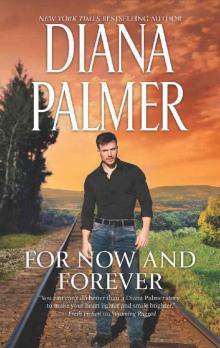 For Now and Forever
For Now and Forever Texas Proud and Circle of Gold
Texas Proud and Circle of Gold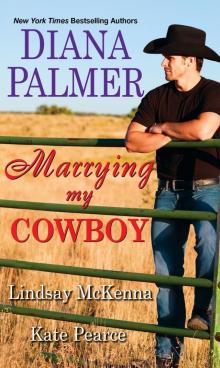 Marrying My Cowboy
Marrying My Cowboy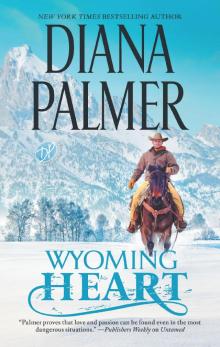 Wyoming Heart
Wyoming Heart Christmas Kisses with My Cowboy
Christmas Kisses with My Cowboy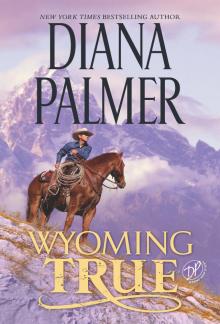 Wyoming True
Wyoming True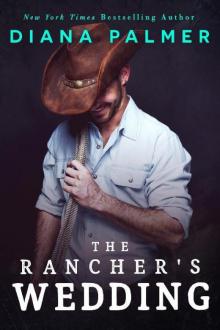 The Rancher's Wedding
The Rancher's Wedding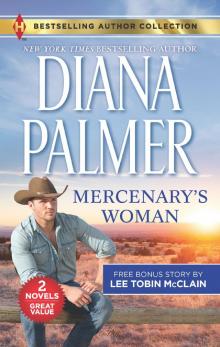 Mercenary's Woman ; Outlawed!
Mercenary's Woman ; Outlawed! Long, Tall Texans: Stanton ; Long, Tall Texans: Garon
Long, Tall Texans: Stanton ; Long, Tall Texans: Garon Lawless
Lawless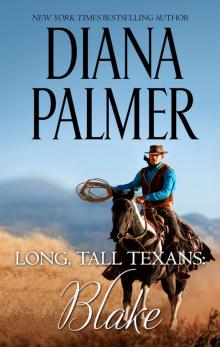 Blake
Blake Escapade
Escapade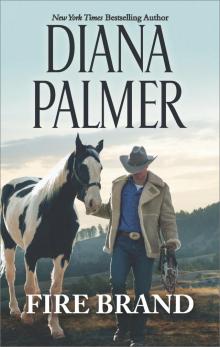 Fire Brand
Fire Brand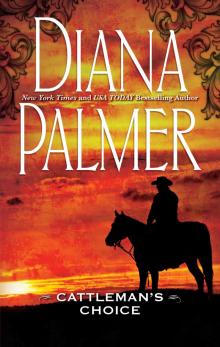 Cattleman's Choice
Cattleman's Choice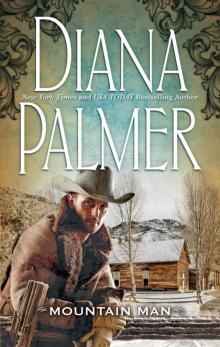 Mountain Man
Mountain Man Long, Tall and Tempted
Long, Tall and Tempted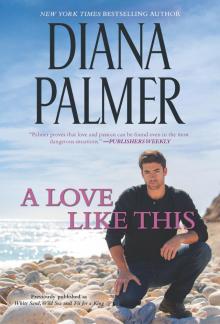 A Love Like This
A Love Like This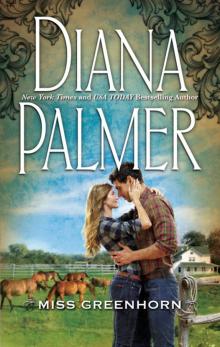 Miss Greenhorn
Miss Greenhorn Magnolia
Magnolia Lord of the Desert
Lord of the Desert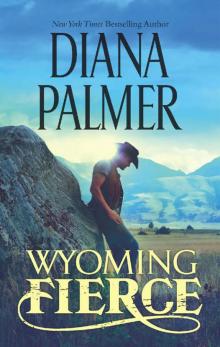 Wyoming Fierce
Wyoming Fierce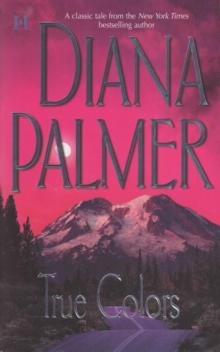 True Colors
True Colors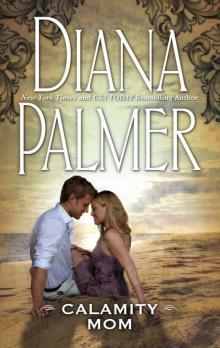 Calamity Mom
Calamity Mom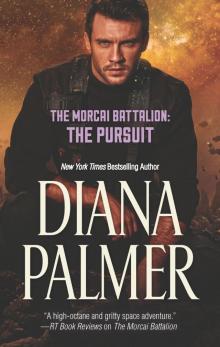 The Pursuit
The Pursuit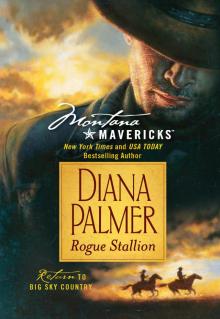 Rogue Stallion
Rogue Stallion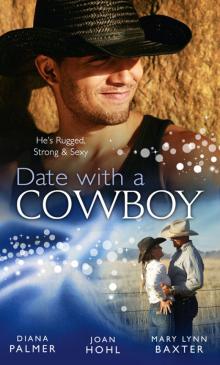 Date with a Cowboy
Date with a Cowboy Heart of Winter
Heart of Winter Friends and Lovers
Friends and Lovers Love on Trial
Love on Trial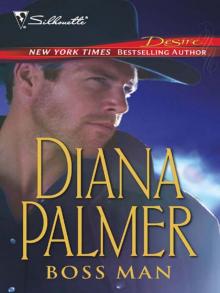 Boss Man
Boss Man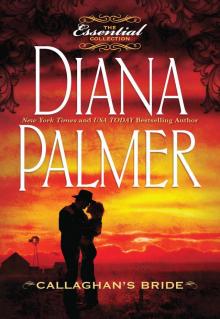 Callaghan's Bride
Callaghan's Bride Before Sunrise
Before Sunrise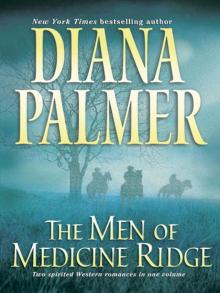 The Men of Medicine Ridge
The Men of Medicine Ridge Texas Proud
Texas Proud Wyoming Tough
Wyoming Tough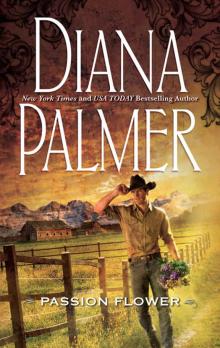 Passion Flower
Passion Flower Maggie's Dad
Maggie's Dad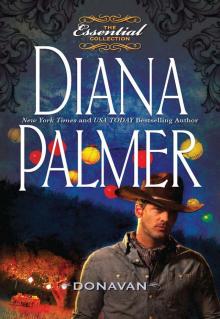 Donavan
Donavan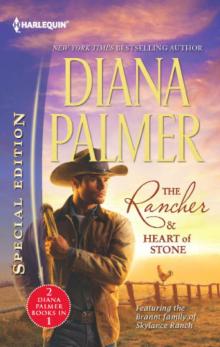 The Rancher & Heart of Stone
The Rancher & Heart of Stone Long, Tall Texans: Tom
Long, Tall Texans: Tom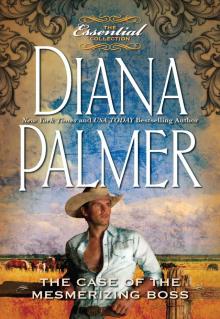 The Case of the Mesmerizing Boss
The Case of the Mesmerizing Boss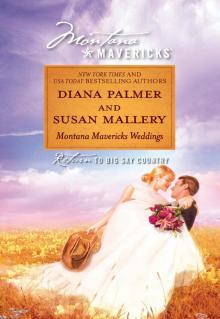 Montana Mavericks Weddings
Montana Mavericks Weddings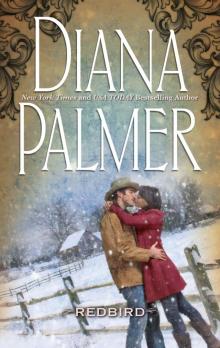 Redbird
Redbird Wyoming Strong
Wyoming Strong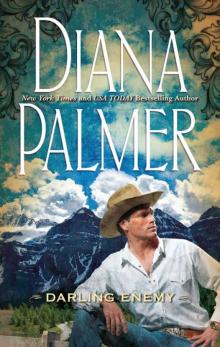 Darling Enemy
Darling Enemy Love by Proxy
Love by Proxy Coltrain's Proposal
Coltrain's Proposal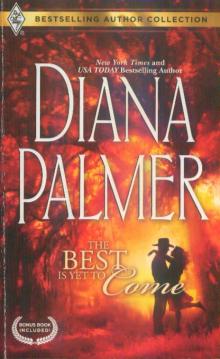 The Best Is Yet to Come & Maternity Bride
The Best Is Yet to Come & Maternity Bride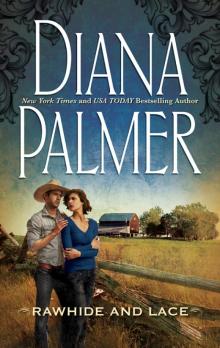 Rawhide and Lace
Rawhide and Lace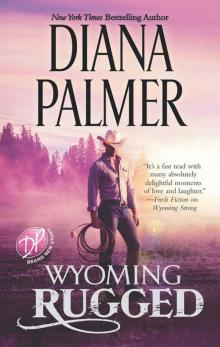 Wyoming Rugged
Wyoming Rugged Patient Nurse
Patient Nurse Undaunted
Undaunted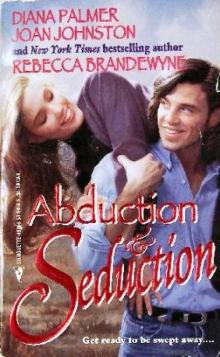 Long Tall Texans Series Book 13 - Redbird
Long Tall Texans Series Book 13 - Redbird Outsider
Outsider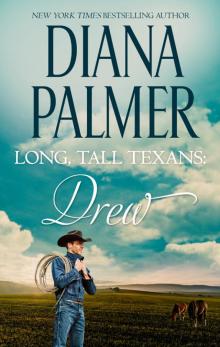 Long, Tall Texans: Drew
Long, Tall Texans: Drew Long, Tall Texans--Christopher
Long, Tall Texans--Christopher Merciless
Merciless A Match Made Under the Mistletoe
A Match Made Under the Mistletoe Evan
Evan Hunter
Hunter Now and Forever
Now and Forever Hard to Handle
Hard to Handle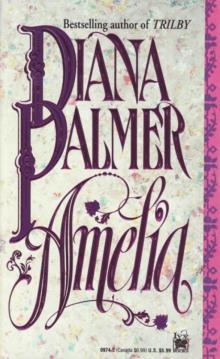 Amelia
Amelia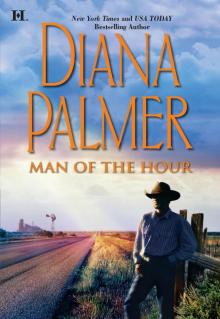 Man of the Hour
Man of the Hour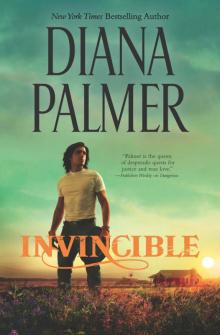 Invincible
Invincible The Maverick
The Maverick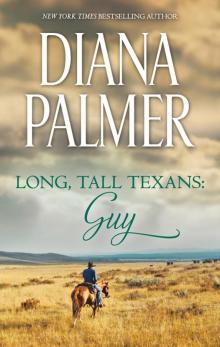 Long, Tall Texans--Guy
Long, Tall Texans--Guy Noelle
Noelle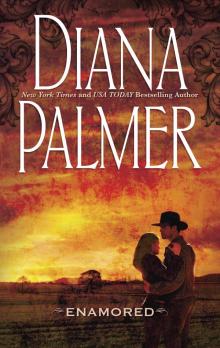 Enamored
Enamored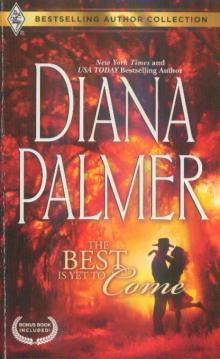 The Best Is Yet to Come
The Best Is Yet to Come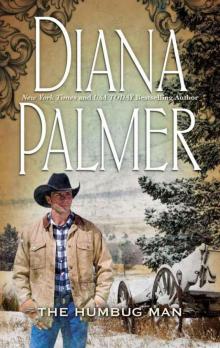 The Humbug Man
The Humbug Man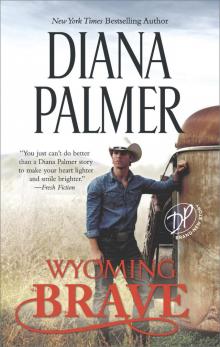 Wyoming Brave
Wyoming Brave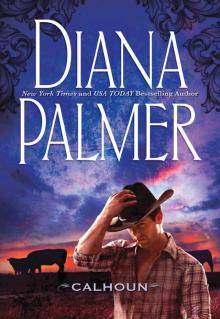 Calhoun
Calhoun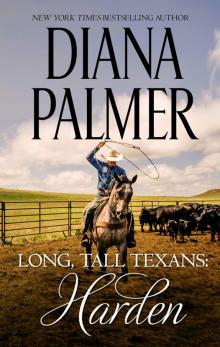 Long, Tall Texans--Harden
Long, Tall Texans--Harden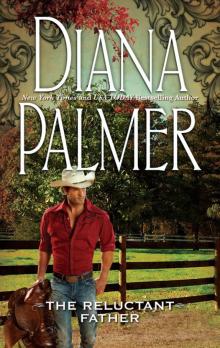 The Reluctant Father
The Reluctant Father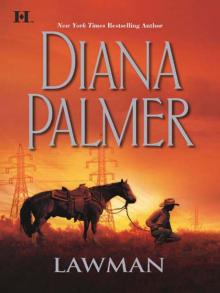 Lawman
Lawman Long, Tall Texans: Hank & Ultimate Cowboy ; Long, Tall Texans: Hank
Long, Tall Texans: Hank & Ultimate Cowboy ; Long, Tall Texans: Hank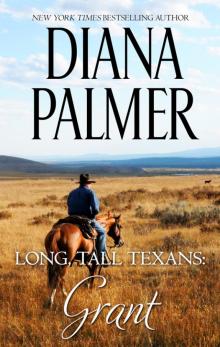 Grant
Grant Nelson's Brand
Nelson's Brand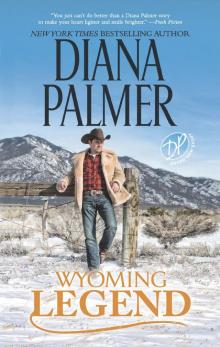 Wyoming Legend
Wyoming Legend Diamond Spur
Diamond Spur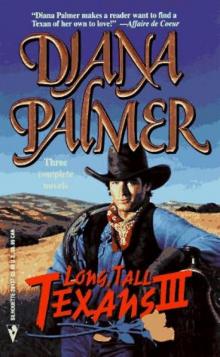 That Burke Man
That Burke Man Wyoming Bold (Mills & Boon M&B)
Wyoming Bold (Mills & Boon M&B) Heartless
Heartless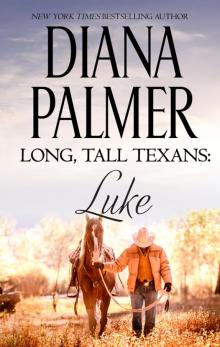 Long, Tall Texans--Luke
Long, Tall Texans--Luke To Have and to Hold
To Have and to Hold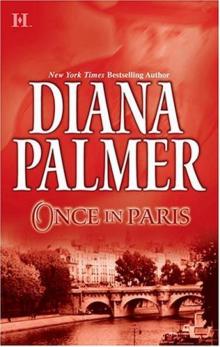 Once in Paris
Once in Paris A Husband for Christmas: Snow KissesLionhearted
A Husband for Christmas: Snow KissesLionhearted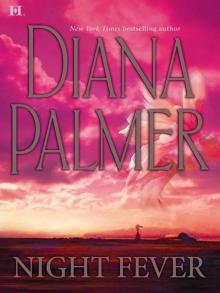 Night Fever
Night Fever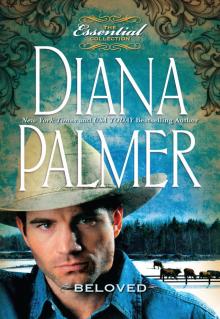 Beloved
Beloved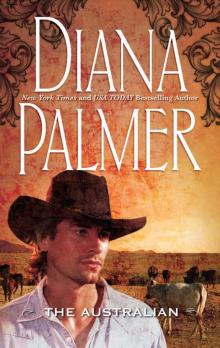 The Australian
The Australian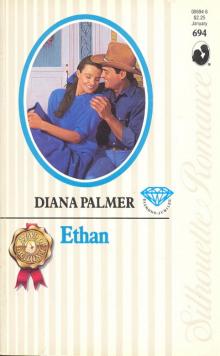 Ethan
Ethan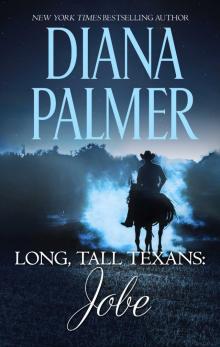 Long, Tall Texans: Jobe
Long, Tall Texans: Jobe Bound by Honor: Mercenary's WomanThe Winter Soldier
Bound by Honor: Mercenary's WomanThe Winter Soldier Tender Stranger
Tender Stranger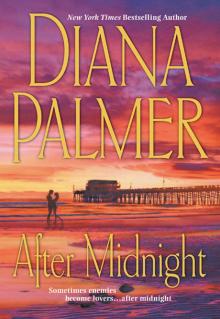 After Midnight
After Midnight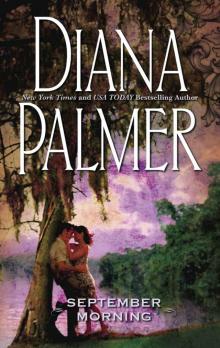 September Morning
September Morning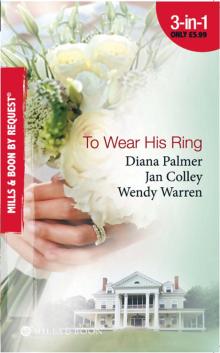 To Wear His Ring
To Wear His Ring Heartbreaker
Heartbreaker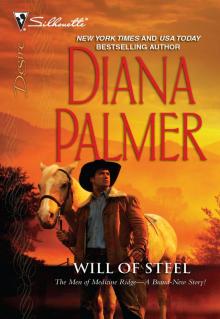 Will of Steel
Will of Steel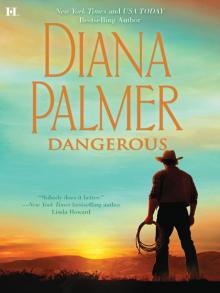 Dangerous
Dangerous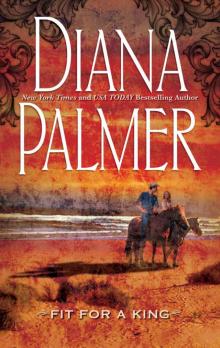 Fit for a King
Fit for a King Diamond in the Rough
Diamond in the Rough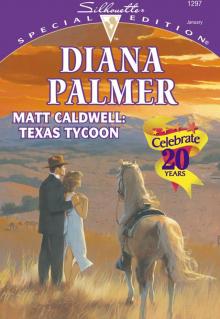 Matt Caldwell: Texas Tycoon
Matt Caldwell: Texas Tycoon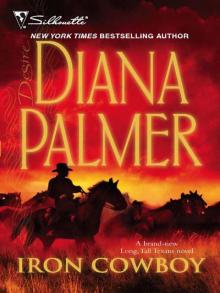 Iron Cowboy
Iron Cowboy Fire And Ice
Fire And Ice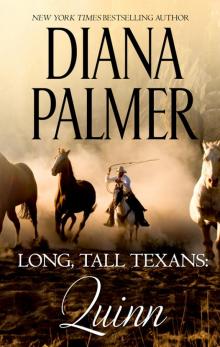 Long, Tall Texans--Quinn--A Single Dad Western Romance
Long, Tall Texans--Quinn--A Single Dad Western Romance Montana Mavericks, Books 1-4
Montana Mavericks, Books 1-4 Denim and Lace
Denim and Lace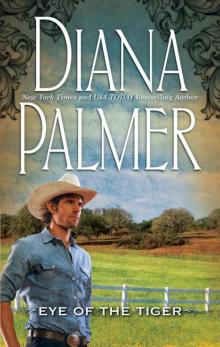 Eye of the Tiger
Eye of the Tiger The Princess Bride
The Princess Bride Long, Tall Texans: Rey ; Long, Tall Texans: Curtis ; A Man of Means ; Garden Cop
Long, Tall Texans: Rey ; Long, Tall Texans: Curtis ; A Man of Means ; Garden Cop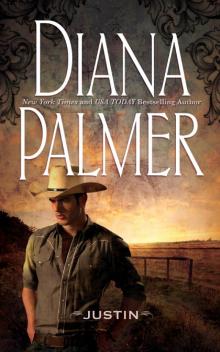 Justin
Justin Nora
Nora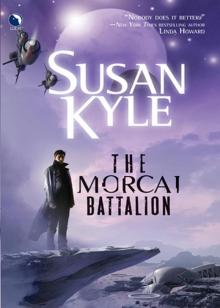 The Morcai Battalion
The Morcai Battalion Heart of Stone
Heart of Stone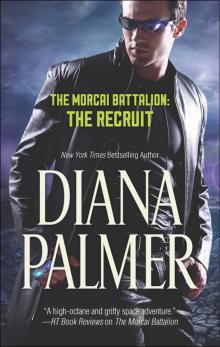 The Morcai Battalion: The Recruit
The Morcai Battalion: The Recruit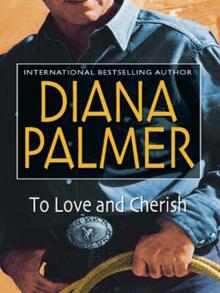 To Love and Cherish
To Love and Cherish Invictus
Invictus Regan's Pride
Regan's Pride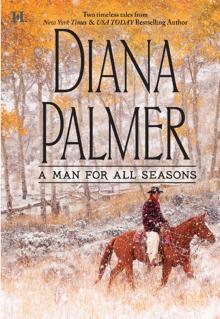 A Man for All Seasons
A Man for All Seasons Sweet Enemy
Sweet Enemy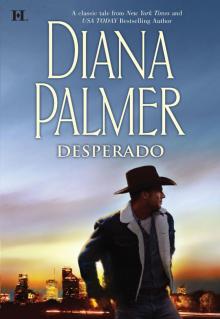 Desperado
Desperado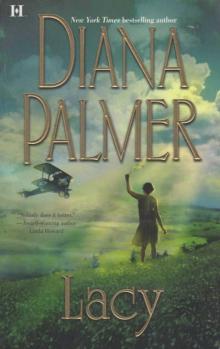 Lacy
Lacy The Winter Man
The Winter Man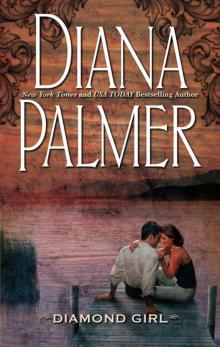 Diamond Girl
Diamond Girl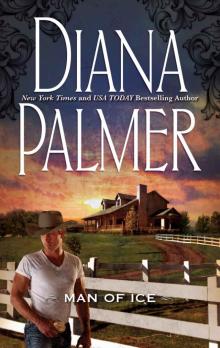 Man of Ice
Man of Ice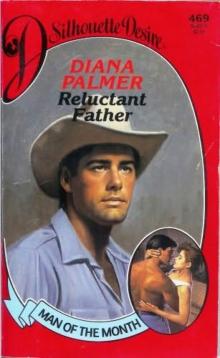 Reluctant Father
Reluctant Father Christmas with My Cowboy
Christmas with My Cowboy Love with a Long, Tall Texan
Love with a Long, Tall Texan Wyoming Bold wm-3
Wyoming Bold wm-3 King's Ransom
King's Ransom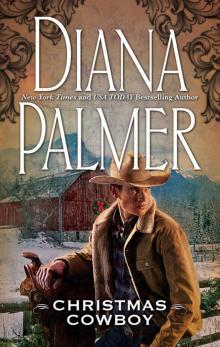 Christmas Cowboy
Christmas Cowboy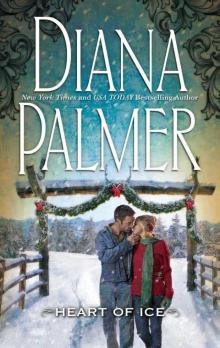 Heart of Ice
Heart of Ice Fearless
Fearless Long, Tall Texans_Hank
Long, Tall Texans_Hank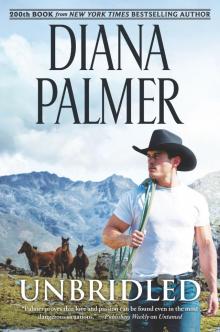 Unbridled
Unbridled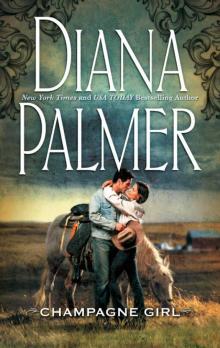 Champagne Girl
Champagne Girl The Greatest Gift
The Greatest Gift Storm Over the Lake
Storm Over the Lake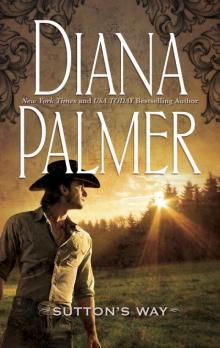 Sutton's Way
Sutton's Way Lionhearted
Lionhearted Renegade
Renegade Betrayed by Love
Betrayed by Love Dream's End
Dream's End All That Glitters
All That Glitters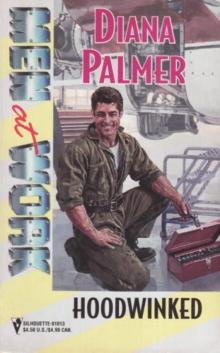 Hoodwinked
Hoodwinked Soldier of Fortune
Soldier of Fortune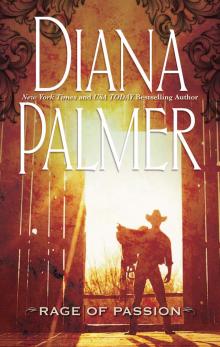 Rage of Passion
Rage of Passion Winter Roses
Winter Roses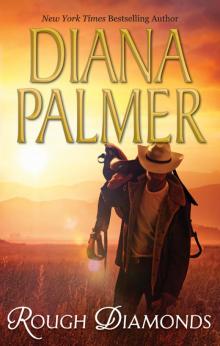 Rough Diamonds: Wyoming ToughDiamond in the Rough
Rough Diamonds: Wyoming ToughDiamond in the Rough Protector
Protector Emmett
Emmett True Blue
True Blue The Tender Stranger
The Tender Stranger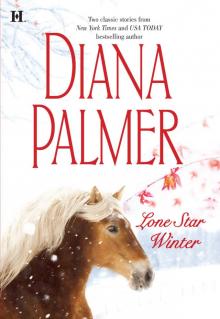 Lone Star Winter
Lone Star Winter Man in Control
Man in Control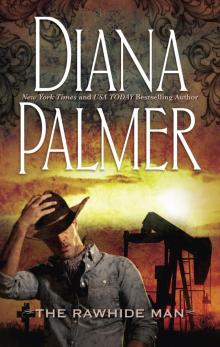 The Rawhide Man
The Rawhide Man Untamed
Untamed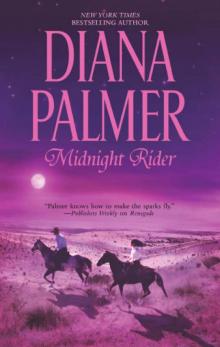 Midnight Rider
Midnight Rider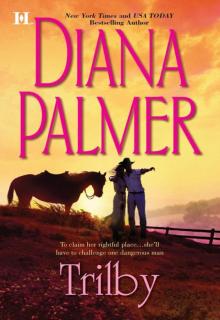 Trilby
Trilby A Long Tall Texan Summer
A Long Tall Texan Summer Tangled Destinies
Tangled Destinies LovePlay
LovePlay Blind Promises
Blind Promises Carrera's Bride
Carrera's Bride Calamity Mum
Calamity Mum Long, Tall Texan Legacy
Long, Tall Texan Legacy Bound by Honor
Bound by Honor Wyoming Winter--A Small-Town Christmas Romance
Wyoming Winter--A Small-Town Christmas Romance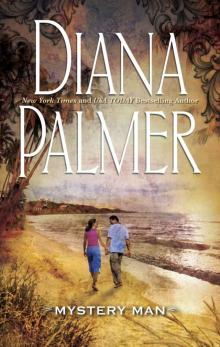 Mystery Man
Mystery Man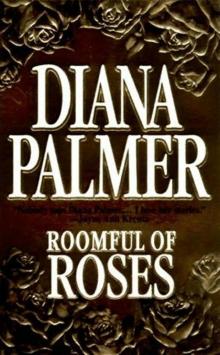 Roomful of Roses
Roomful of Roses Defender
Defender Bound by a Promise
Bound by a Promise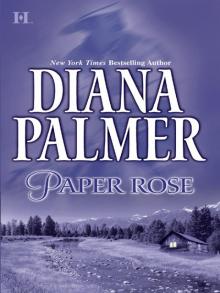 Paper Rose
Paper Rose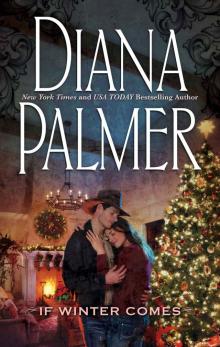 If Winter Comes
If Winter Comes Circle of Gold
Circle of Gold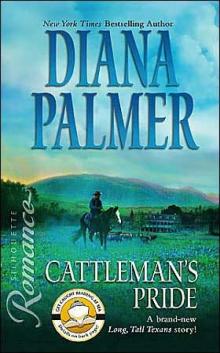 Cattleman's Pride
Cattleman's Pride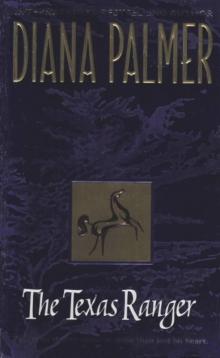 The Texas Ranger
The Texas Ranger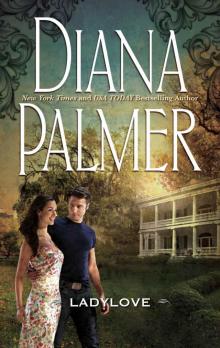 Lady Love
Lady Love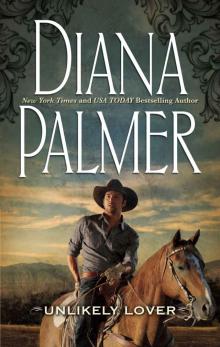 Unlikely Lover
Unlikely Lover A Man of Means
A Man of Means The Snow Man
The Snow Man The Case of the Missing Secretary
The Case of the Missing Secretary Harden
Harden Tough to Tame
Tough to Tame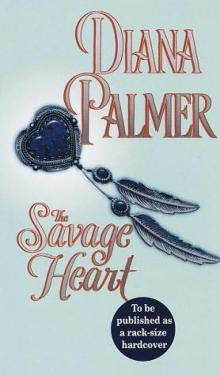 The Savage Heart
The Savage Heart